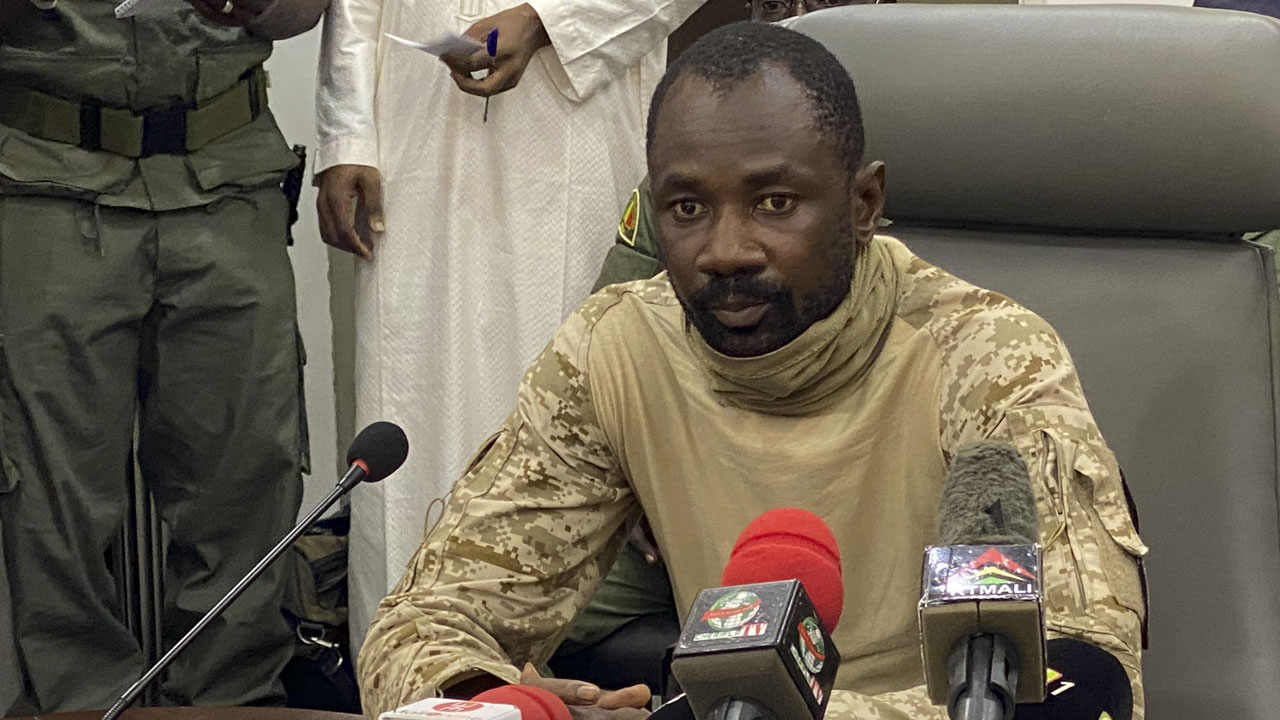
Mali’s neighbours have criticised the country’s junta for formally extending military rule by two years but said they would “continue to engage” with it.
On Monday, junta leader Colonel Assimi Goita signed a decree that said the military would run the country until March 2024, when elections would be held.
The move snubbed efforts by the Economic Community of West African States (ECOWAS) to scale back the transition.
In a statement issued late Tuesday, the 15-member regional bloc said it “takes note” of the decree announcement.
“ECOWAS regrets that while negotiations are still ongoing to reach a consensus, the Malian authorities took this decision,” it said.
“The ECOWAS mediator will continue to engage the Malian authorities on the transitional period in order to find a mutually agreed timeline on the transition that will allow full support from ECOWAS.”
Mali has been run by a military junta since August 2020, when colonels angered at failures to roll back the jihadists toppled the country’s elected leader, Ibrahim Boubacar Keita.
They then staged a second de-facto coup in May 2021, but reiterated a vow to hand back control by February 2022.
As that deadline loomed, the junta put forward plans to rule for an additional five years — a scheme that was halted after ECOWAS imposed trade and financial sanctions.
ECOWAS insisted on a 16-month transition together with a detailed timetable of actions that would pave the way for the elections.
The junta spoke of a 24-month deadline, but did not make this plan official, as it did via Monday’s decree.
Speculation grew last week that, with negotiations and the passage of time, ECOWAS may ease the sanctions.
But a summit in Ghana on Saturday was unable to reach an agreement on the issue.
It will now be addressed at a summit on July 3, when just over 20 months will be left for junta’s declared transition period.
Mali’s government spokesman, Colonel Abdoulaye Maiga late Monday said Maiga had “absolutely no” fears of the risk of reviving tensions with ECOWAS.
The decree is in fact “a highly eloquent sign of the will for dialogue,” he said.
The decree could have been signed before Monday, Maiga noted, adding that the junta believed that the talks with ECOWAS had “advanced” sufficiently for the measure to be passed.
Now that the transition deadline has been set, the way is open for drawing up a timetable, “whose publication is imminent”, the spokesman said.
ECOWAS’ mediator with Mali is the Nigerian former president, Goodluck Jonathan.



